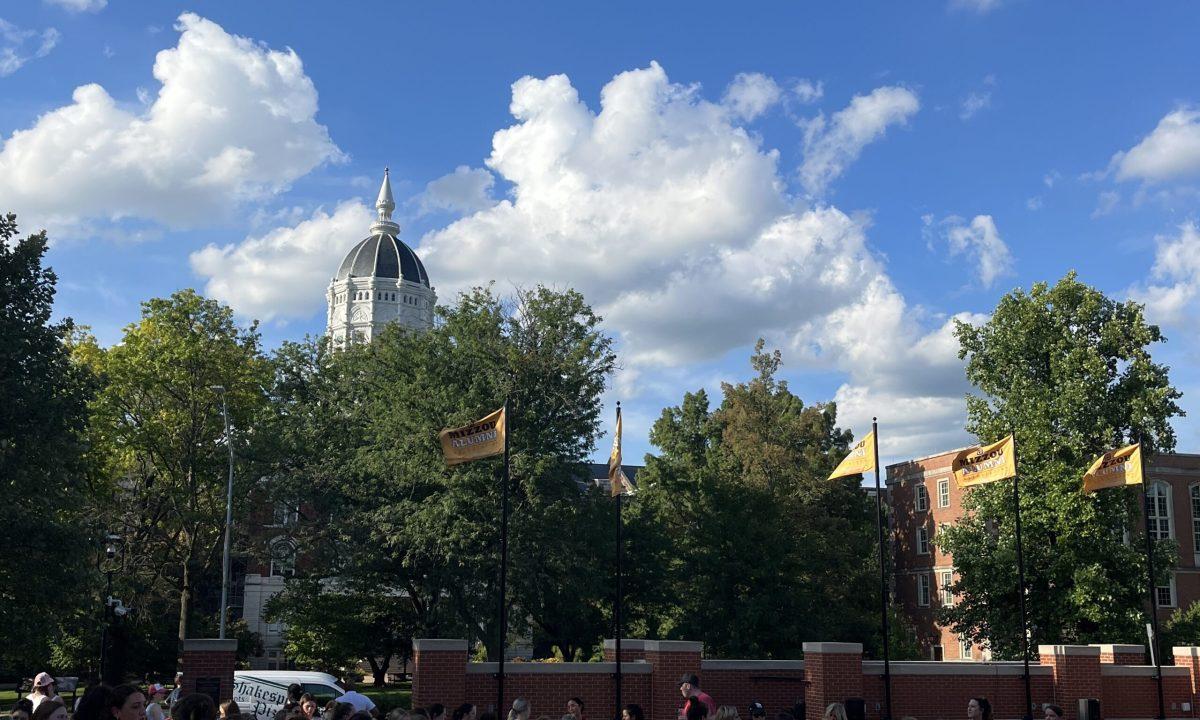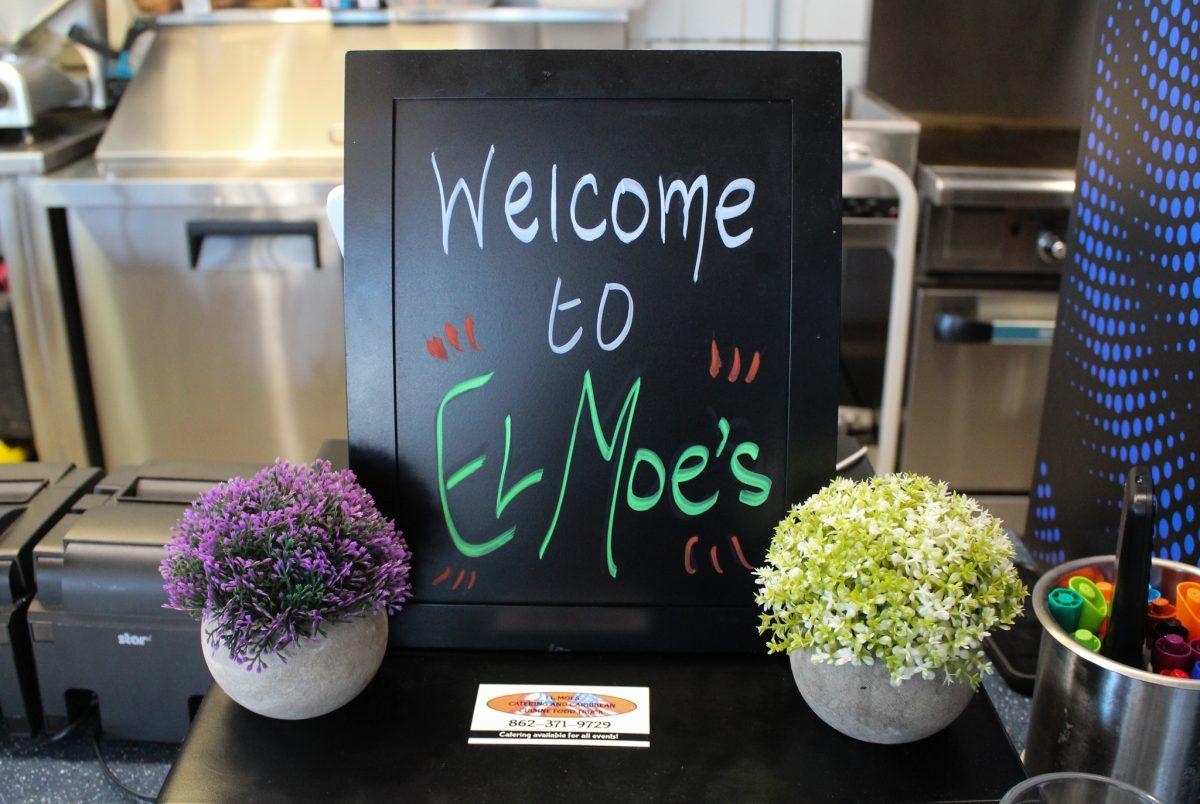After exclusionary practices throughout its past, various individuals strive for greater acceptance within the Panhellenic Association community. For some, recent steps and initiatives have not gone far enough.
Further information and experiences of PHA members of color are detailed in the next article of this three-part series.
Editor’s Note: Anna Colletto, Editor-in-Chief of The Maneater and editor of this article, and Shannon Worley, former MOVE editor and article contributor, are both involved in the PHA community.
Until 1977, the MU Panhellenic Association (PHA) recruitment consisted of only white members. When Anita Estell arrived on campus for her freshman year that August, she changed that. After hearing of her white friend’s siblings’ experiences in sororities at MU, Estell decided to enter recruitment as a potential new member (PNM). When walking into Memorial Union on her first day, she struggled to find anyone who looked like her.
She soon discovered her recruitment was unlike any other — she was the first Black woman to go through MU PHA recruitment. Throughout the formal recruitment week, she was met with complaints from the UM System Board of Curators, looks of surprise, and, at the end of the week, no invitation to join a sorority.
“I had never experienced overt racism at that level,” Estell said in an interview with the Columbia Missourian in 2017. “It’s a part of the process of being a pioneer and a trailblazer. Sometimes, you go down those roads that others don’t travel — the roads that are hardest to travel — so you can make way for others to come after you.”
Greek life organizations were first formed in the late 1700s but didn’t gain traction until the 1800s. With this newfound popularity on campuses across the country, greek life began to dictate membership by sex, religion and race. While some of these alienating regulations eased over the years, racial bans were enforced until the 1960s.
In response to this segregation, students of color formed their own greek-letter organizations. Some of these organizations on the MU campus include Alpha Phi Alpha Fraternity, Inc. and Alpha Kappa Alpha Sorority, Inc., among others.
In the spring of 2022, junior Jayona Shields joined Sigma Gamma Rho Sorority, Inc. After researching Greek organizations on campus, Shields decided she wanted to go through National Pan-Hellenic recruitment and join a group founded on a long history of people of color.
“I didn’t see much diversity within the PHA, and I wanted to make sure that if I was going to join an organization that I was going to be represented,” Shields said. “Not to say that there are not people of color in those organizations — I just felt like I wanted to be in an organization that is based on my history: Black history.”
Although PHA does not have an inclusive history, it has taken steps in recent years to work toward a more inclusive future, including eliminating the legacy policy and implementing an action plan.
On Sept. 17, 2020, PHA released an Instagram statement following the murder of George Floyd. It detailed an action plan focused on the inclusion of diversity, equity and inclusion standards. This action plan consisted of several goals, including creating the Vice President of Diversity and Inclusion position.
The 2021 PHA Executive Board spent its term trying to meet these goals. When the 2022 board was elected in January of this year, the new VP of Diversity and Inclusion, Ericka Loida was tasked with creating a new action plan to address previous goals and current issues.
Loida, PHA Public Relations and the PHA Advisor have declined to comment on their current goals, the process of Pi Chi hiring and DEI expectations for chapters. Additionally, the Kappa Kappa Gamma president, Alpha Chi Omega PR and Marketing, Chi Omega President and Kappa Delta President declined to comment on the climate of diversity and inclusion within their chapters.
Diversity, Equity and Inclusion (DEI) chairs from each PHA chapter have been collaborating with an external organization, The Parallel Agency, to curate this new plan since March 2022.
Parallel is a company based in San Antonio, Texas whose mission is to “empower sororities and fraternities to align their words and actions in the areas of equity, access and belonging.” According to university spokesperson of student affairs Uriah Orland, PHA chose Parallel because of its previous work with Panhellenic communities of similar size.
“Parallel was chosen to help alleviate blind spots or implicit biases that could have appeared if one or a handful of students made an action plan alone,” Orland said.
A contract agreement between the company and PHA began in November 2021. According to Orland, Parallel has provided educational training for Panhellenic leaders and facilitated conversations about the climate of greek life, how to utilize university resources and how to cultivate a more inclusive environment. Leaders from the Parallel have been collaborating with DEI chairs to create a new strategic plan that will increase DEI standards. The full extent of the action plan remains unknown until DEI chairs finalize it.
MU PHA was not the only organization across the country to release a public statement and implement a DEI position in 2020. According to employment and recruiting site Glassdoor, DEI-related job openings rose by 55% in the two months following George Floyd’s murder. Two years after his death, many speculate about how genuine these actions truly were.
“You just created the position because it’s politically correct,” Columbia Provisionally Licensed Professional Counselor Dedrae Kelly said. “Those positions are not enough. There needs to be a literal narrative regarding and coming from the voices that it affects because what they are doing is trying to develop a system that is equal. There needs to be funding and resources available to them like there are to all of the other departments, an advocacy group [and] councils.” In her practice, Kelly focuses on Black or African American clients or clients with other racial backgrounds. She also specializes in trauma and PTSD, and racial identity and leads a Women of Color support group.
According to Eden Schulte, Kappa Delta Member and DEI Committee Chair, many DEI chairs at MU chapters have little to no funding. Though the revitalized DEI action plan remains unclear, it appears Loida has provided some solutions to this problem of underfunding that many DEI branches face. Schulte said she appreciated Loida’s suggestion that chapters cross-fund within the various sectors of their chapter.
“If a DEI team wanted to host a movie night, we could then go to our Sisterhood chairs and receive funds from their budget,” Schulte said. “DEI chairs for some chapters still have little/no funds, so asking another team of that chapter would be able to help fund the DEI teams.”
Alpha Delta Pi VP DEI Vy Luong said she has also appreciated Loida’s efforts to support the PHA community.
“Something that really helped me is having these deep conversations with DEI chairs from every chapter,” Luong said. “We have DEI meetings every week and we talk about what we’re scared of with DEI, we talk about our fears and we talk about what doesn’t work — the negative parts that no one really talks about.”
Outside of the DEI committees, some members of the PHA community like Chi Omega member Kaylah Janssen feel this support lacks meaningful impact.
“As an outsider, I don’t see much being done,” Janssen said. “I see them making presentations about a Black historical figure once in a while or having a Black speaker come in once. To me, I just don’t see what actually is being done as a DEI chair to make PHA more accessible.”
With PHA’s 2022 formal recruitment coming to a close as PNMs have been taking to the streets of MU’s greek town, it is unclear how PHA’s work toward a more inclusive environment this year will impact and support all PNMs.
“When you’re around people that don’t look like you, you realize how different you look to other people — I think that’s a big reason why people don’t join PHA,” Janssen said. “It doesn’t look very diverse; it doesn’t look that accepting. I don’t think people of color feel like it’s worth it to try and join something like that in the first place if they think they won’t be accepted.”
After completing her sophomore year, Janssen dropped Chi Omega.
“I just dropped because I saw no benefit in being an alum for the sorority,” Janssen said. “Also, it costs way too much and I didn’t feel like I fit in with most of the people in my sorority.”
Although PHA has taken steps toward a more inclusive existence since the creation of the first Greek chapter, its harmful roots still shine through.
“If you begin in violence, it’s what you do,” Kelly said. “If you don’t accept it, if you don’t learn from the mistake of it … history is destined to be repeated.”
While the PHA community and its leaders continue to work toward the release and enactment of the action plan, members battle systemic issues daily. Speaking as an individual and reflecting on her personal experiences in recruitment and current PHA member, Kappa Alpha Theta VP DEI Delaney Pierce stated that there is still work to be done.
“Going into recruitment, I knew it wouldn’t be the most diverse place, but I think I was naive to think that it would be inclusive,” Pierce said. “We as a community have come a long way, but there is still a lot of progress to be made. I have hope of what we can do in the future and how we can get to being a better place for anyone who wants to be a part of the PHA community.”
To read more about the impact of the origins of Greek life on today’s members, stay tuned for the third and final article of our series.
Edited by: Anna Colletto | [email protected]













